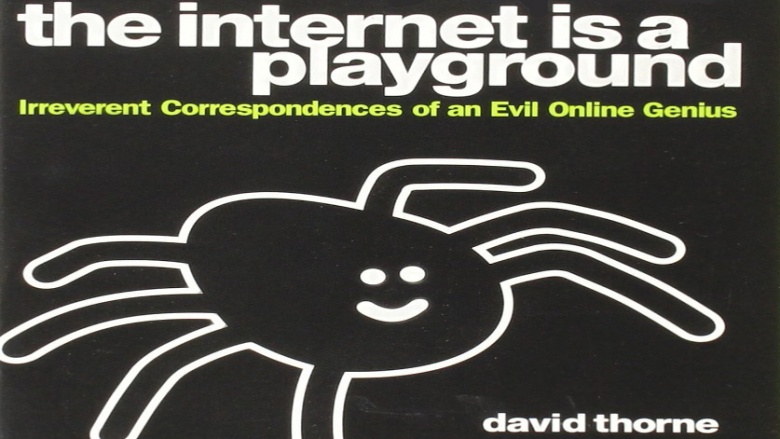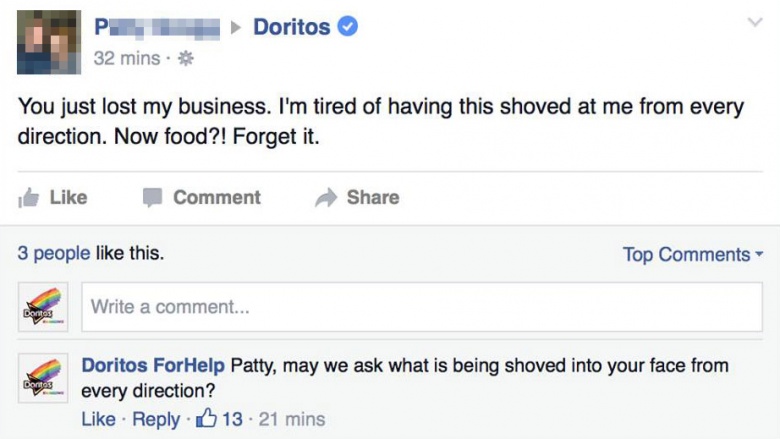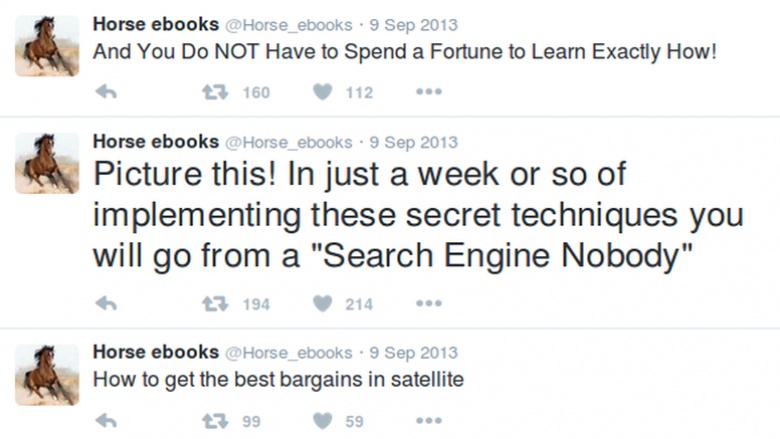Most Epic Internet Trolls Ever
These days, trolling has developed a pretty bad rep. People most often associate it with hiding behind anonymity and barraging strangers with wildly offensive abuse and just being a jerk for literally no reason. It wasn't always this way, however — throughout the history of the internet, folks have emerged proving that the art of trolling is much more subtle, much more strategic, and so much funnier than many of the people you see adopting the mantle now.
419 Eater - A vintage computer carved out of wood
The sort of form-letter email scam most people refer to now as the "Nigerian Prince," or "419 scam," (where the scammer promises an extremely large payment if the victim advances them money to help with the release) actually predates email itself by several hundred years. Most of us have encountered it, most of us have been annoyed by it, but this entry is about folks that decided to fight back.
The "419 Eater" forum was started in October 2003 by an IT tech named Mike Berry who had grown frustrated with scam e-mails. The denizens of his forum employ what they coin "straight baits," which sounds like catfishing a dating site, but is actually a stalling technique to waste the scammer's time and provoke them into amusing situations. 419 Eater members would engage with the scammers in elaborate schemes to "prove" their identity, with the promise of providing this advance money once the proof met their satisfaction. These "proofs" included everything from having the scammer send photos of themselves in compromising poses, to handwriting lengthy manuscripts, to even getting tattoos. You'd think folks that spend all day manipulating people's greed wouldn't let their own greed blow their strategy, but if that were true, this forum wouldn't exist.
The 419 Eaters "Trophy Room" details a lengthy email correspondence between their own "Derek Trotter" and a scammer named "John Boko." "Trotter" actually ignores the scam completely, claiming to be a representative of an art museum looking for sculpture. Over several emails, he gets Boko to carve and mail him first a sculpture of two characters from the British kids show Creature Comforts, and then an impressively detailed replica of a Commodore 64, both hewn out of polished wood. Subsequent emails detail how the sculptures unfortunately did not qualify for the (nonexistent) museum, culminating in an email from "Trotter"s "brother" claiming he was arrested for fraud. Seeing his handiwork makes one wonder what could have been of "Boko's" sculpture career.
Jeff Harris and the P-P-Powerbook!
In 2004, Jeff Harris was looking to sell a G4 Powerbook on eBay. While the auction was underway, he was contacted by a scammer requesting to make a transaction for the computer through an escrow service. Protip if anyone asks you to do this: don't. Escrow fraud is actually very common on eBay — here's a handy guide to what good and bad transactions look like. Jeff realized he was looking at one of the bad ones, through an eBay account he later found had been compromised.
While reporting the fraudulent account to eBay, he also decided to have a little fun. Knowing the scammer would never pay him either way, he mocked up a fake Powerbook, using a three-ring binder with a bunch of dislodged computer keys attached to it with double-sided tape. So, not as good as a real G4, but better than a lot of Dell laptops available at the time.
Convincing the scammer to pay the shipping costs, he made sure to claim with the postal service that the pile of garbage was worth the full value of an actual Powerbook, insuring the scammer would also have to pay hundreds in customs fees to receive the item. Now, Jeff could afford to buy a real computer. Win-win!
Rob Cockerham -- the Costco prank
Rob Cockerham, via his website cockeyed.com, has been pulling internet pranks for nearly as long as the internet has existed. He's done some pretty bonkers stuff over the years, like filling a giant bear with ketchup and then shooting it bloody for Fourth Of July, because wouldn't you if you had thought of it first? He was organizing "flash mobs" before they were a thing, crafted fake historical plaques, and created (while having fans physically replace) menus at places like TGIFridays and McDonalds.
He's probably most well known, however, for the "Costco Prank," which had himself and fans replacing Costco shelf markers with labels like "Polo Assless Chaps," "Actual Human Skulls," and "Canine Pacemakers," to see how long they would last. In many stores, this would seem like an improvement, but unfortunately Costco did not agree. This actually led to Cockerman getting in trouble, and unfortunately he had to remove the page on his site that described the prank. Thankfully some photos escaped to the internet, appearing on Boing Boing, Costco Insider, other blogs, and now Grunge! You can thank us later.
David Thorne doing anything
David Thorne is an Australian humorist with a website called 27bslash6, which documents his regular torment of co-workers and clients through increasingly infuriating (on their end, anyway) email exchanges.
He also overhauled the interview process at his work to include questions like "have you ever considered growing your own cabbage?", once took on a request to create a poster for a missing cat as if he is designing a movie poster, and arranged a "book tour" at Barnes And Nobles across the country, despite having no book to sell (he would simply read other people's books and not talk to you), much to the chagrin of at least one B&N manager. He particularly achieved internet fame for attempting to pay an overdue $233.95 bill with a drawing of a seven-legged spider. When the collector quite understandably refused this "payment," Thorne simply resent the drawing, this time with eight legs. Still, the weird collector lady wanted money. Imagine that.
Somehow, being an insufferably obtuse jerk who wasted scores of people's time paid off — his mischief has led to appearances on the BBC and many late-night comedy shows, as well as a book deal, making him one of the more successful viral stars out there. Meanwhile, we're considering getting refund on our college degrees, because none of our guidance counselors even once mentioned this path as a career possibility.
Mike Melgaard -- fake customer service accounts to deal with jerks
Customer service is usually a thankless, extremely stressful job — talking to angry customers is an extremely difficult prospect. Mike Melgaard has been a busy man lately, impersonating many of them and pointing out how ridiculous their complaints sound.
He first came to the internet's attention when he spent 16 hours trolling customers on Target's Facebook page, who were angry over Target removing gendered labels on certain areas of their store. Melgaard (as a fake customer service agent) heartily mocked their concerns. Target eventually stepped in, providing their actual customer service number and distancing themselves from Melgaard's account because even jerks need to buy stuff.
Melgaard struck again a few months later, targeting Doritos customers angry over a special line of chips sponsoring the "It Gets Better" program, and then again over customers angry about a Campbells soup ad showcasing a pair of gay dads. Basically, if customers are outraged because a company dares to be progressive, Melgaard will be there, making those customers look as stupid as humanly possible/
Horse eBooks -- assumed Twitter bot is actually an art project
Anyone who's had an email or social media account has encountered spambots, hawking shady products and website memberships through disjointed sentence-fragments that straddle the Uncanny Valley. At this point, they're largely considered an unavoidable annoyance of the internet. So when the "Horse e-books" Twitter account appeared, speaking in that same cut-up spambot language, it left people completely baffled. What was the product? What was it for? Was it selling e-books about horses or for them (we all know how much horsies love to read)? It alternated between advertising language blurbs to enigmatic self-reflection ("Who Else Wants To Become A Golf Ball") to strangely threatening proclamations ("I Will Make Certain You Never Buy Knives Again"). So it was like Donald Trump's Twitter feed, but less about documenting the downfall of civilization, and more about horses ... maybe.
In 2013, the creators of the Horse_ebooks account, Jacob Bakkila and Thomas Bender, finally came clean, revealing it to be a collaborative art project. Or rather, it started out as a spambot before being taken over by Bakkila and Bender in 2011, who then ran it as performance art. The two have since abandoned Horse_ebooks for Bear Stearns Bravo, a choose-your-own-adventure type video project. The influence of Horse, however, lives on with the rise of "Weird Twitter" (where the less something makes sense, the better) and an online homebrew community designing "ebooks bots" (you can even build your own!), because people can't get enough of random pointless gibberish on Twitter. Or rather, Twitter in general.
David Thorpe -- #ExilePitbull sends singer Pitbull to Alaska
In 2012, a brand of "energy" breath strips called Energy Sheets hosted a contest to have singer (more accurately, "singer") Pitbull perform at whatever Wal-Mart in the country garnered the most votes. That's not even the crazy part. The contest — a popularity contest based on Facebook likes — was hijacked by "Weird Twitter" troll David Thorpe (not David Thorne from earlier, though they'd get along). Organizing under the hashtag "#ExilePitbull," he and his followers conspired to send Pitbull to a Walmart in remote Kodiak, Alaska. What's more, they succeeded! Requiring a plane trip, four-hour drive, and a ferry that's only available three times a week to get there, it definitely resembles more of a punishment by God than the typical route of a touring musician.
Pitbull, to his credit, actually took the whole thing with an impressive amount of stride, performing his show in front of the small Kodiak crowd, even including local tribal dancers in his act. He even suggested that next time, Thorpe aim for somewhere even more ambitious, like the Moon. So what started out as an act of sabotage wound up an oddball buddy excursion for everyone involved. Has anyone drafted a screenplay yet?
Jon Hendren -- Edward Scissorhands and eggs
Jon Hendren is another early "Weird Twitter" member, who once organized a campaign to make the lead singer of Smash Mouth eat an ungodly number of eggs for charity ... for some reason. Maybe his voice sounds better when his mouth is full of eggs. It couldn't possibly sound worse.
However, his shining moment came when cable channel HLN mistook him for John Hendren, a correspondent for Al Jazeera. They invited him to speak about Edward Snowden's recent joining of Twitter while still exiled in Russia. When contacted, instead of correcting them, Jon appeared on the network, hilariously dubbed as a "Snowden Supporter," alongside his Twitter handle "@fart." In response to every question, he gave a stone-faced recap of the movie Edward Scissorhands, while the host desperately attempted to keep the show together. Why Edward Scissorhands? Because Weird Twitter.
#ShirtlessShamers -- exposing the hypocrisy of selfie shamers
"Shirtless Shamers" is a hashtag project put together by a feminist-aligned Twitter woman simply named Lindsey. The concept is simple but direct — a juxtaposition of men talking about how they've "lost respect for" women who take scantily-clad selfies, alongside photos of those same men have taken of themselves shirtless.
Coy grins, flexed muscles, and carefully chosen angles contrast with the messages about keeping your body to yourself and not seeking attention or compliments. It's an effective illustration of these men hypocritically taking liberties with their own body, while they wish to inhibit and shame others who do so.
Good Opinions Bot/Arguetron
The popularity of Horse_ebooks spawned a whole cottage industry of individuals developing their own "ebooks"-style spambots for entertainment, art, or amateur social experiments. While many are abstract or simply regurgitate randomized quotes from a massive database of material, some of the best are actually designed to pick fights.
Nora Reed created the "Good Opinions" bot, and Sarah Nyberg created "Arguetron." Completely automated, the combination of randomly generated controversial political statements, belligerent non-answers, and nondescript-but-feminine profile designs create a perfect honey trap for internet jerks. People wind up arguing with the accounts daily, and for extended periods of time, somehow totally unaware they're talking to a bot, which say all you need to know about their debate chops, intellect, and ability to succeed at literally anything.
By the way, we didn't forget the great Ken M. Thing is, he's so epic, he required his very own article (which you can read here!) Enjoy!










